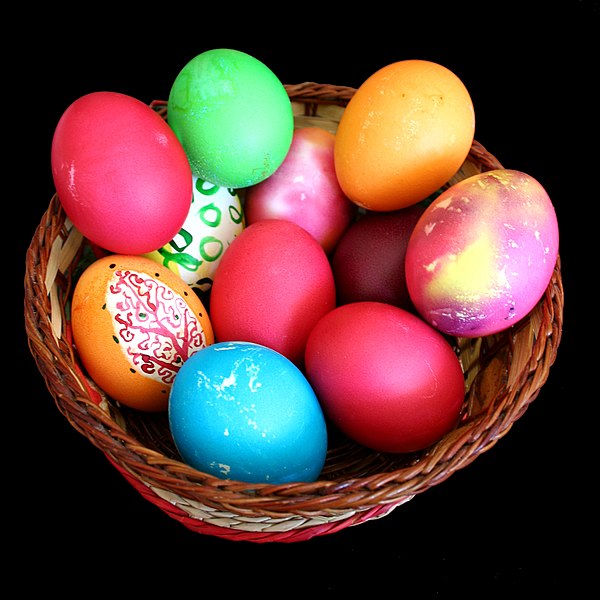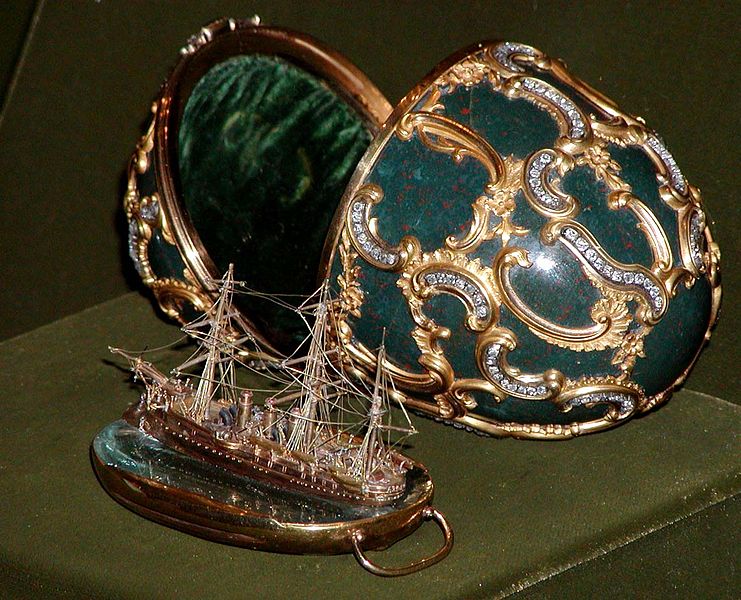EGG
Wild Word Friday!
There’s something about the humble EGG that always reminds me of Easter. I can’t believe how much fun I had as a kid (and still have!) dying EGGs a multitude of colors.
Back then about the only decorations you could put on your EGGs were designs made with wax crayons before you dyed the EGG. Now you can buy kits to marbleize them and gild them and put faces on them. It’s amazing. Some of my friends know how to make those beautiful Ukrainian Pysanky EGGs.
And who hasn’t studied photos of Faberge EGGs in total awe?
(The “Memory of Azov” Faberge Egg)
As far as the English word EGG goes, there’s an interesting history involved, and it has to do with the Vikings. Prior to their arrival in the British Isles, the English word for EGG was the Germanic form ey. When the Vikings landed on the eastern English and Scottish coasts in the 9th century, they began to take land and establish homes, and, of course, they also brought their language, Old Norse. More than 1500 English words in use today were derived from Old Norse, and that includes our word EGG.
So, Happy Easter and a blessed Passover. I hope you get to decorate some EGGs, or at least eat some. How do you prefer your EGGs? Make mine fried hard and served with sour dough toast!
Blessings!
Sue
(Some information from Webster’s New World Dictionary of the American Language and from Wikipedia. Photographs from Wikipedia.)


